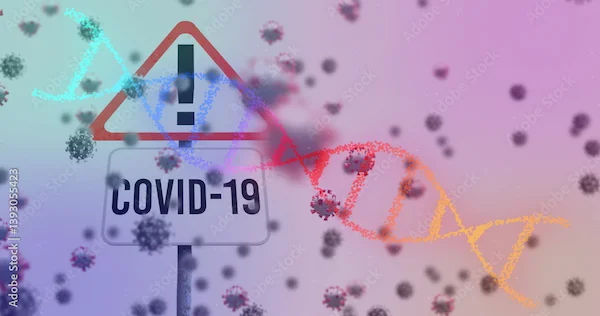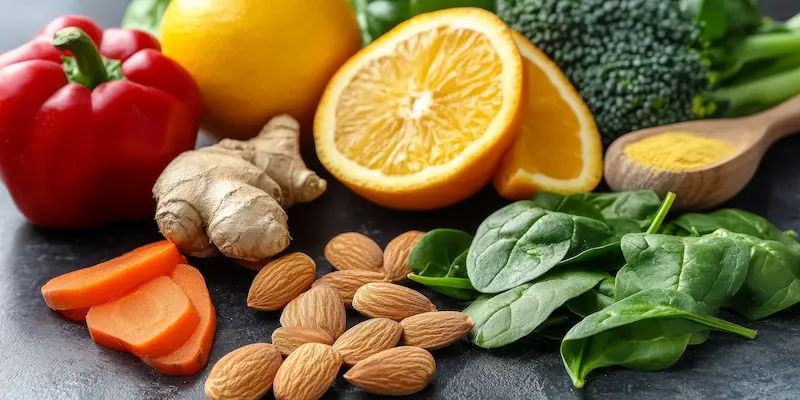Guide to Diet Changes Help Your Kids Beat Exam Stress
Help your kids manage exam stress with the right diet. Learn which foods boost focus, memory, and energy, plus what to avoid for peak performance.


Introduction
Exam season can transform your home from a peaceful haven into a pressure cooker of stress, anxiety, and sleepless nights. As a parent, watching your child struggle is heartbreaking. You might feel powerless, but what if the most powerful tool to help them succeed was right in your kitchen? Mounting scientific evidence shows that diet plays a crucial role in cognitive function, mood regulation, and stress resilience. This isn't about strict eating; it's about strategic nutritional changes that can empower your kids to perform at their peak. This comprehensive guide will walk you through the essential food swaps and smart choices that can sharpen focus, boost memory, and build the mental stamina needed to not just survive, but thrive during exams. Let's turn nutrition into their greatest ally.
Why Food is Your Secret Weapon Against Exam Stress
The link between a student's plate and their performance is stronger than most realise. Food is more than just fuel; it's information for the body and brain. The right nutrients can enhance neurotransmitter activity, stabilise energy levels, and even protect brain cells from the damaging effects of stress hormones like cortisol. Conversely, poor dietary choices can lead to brain fog, irritability, and energy crashes—the last things a studying child needs. By understanding this connection, you can make intentional diet changes that directly support your child's mental well-being and academic efforts during this critical time.
The Brain-Gut Connection: How Food Affects Mood and Focus
Often called the "second brain," the gut produces about 95% of the body's serotonin, a neurotransmitter vital for regulating mood, sleep, and appetite. A diet rich in fibre, probiotics, and prebiotics fosters a healthy gut microbiome, which in turn supports balanced serotonin production. This means less anxiety and a more stable, positive mood for your child, creating a better mental environment for absorbing complex information.
The Dangers of the "Study Sugar Rush" and Subsequent Crash
It's a common scene: a student burning the midnight oil with a soda and a bag of chips for company. While the initial sugar rush might feel energising, it triggers a rapid spike and an inevitable crash in blood sugar. This crash leads to fatigue, difficulty concentrating, and irritability. This cycle forces the body to release cortisol and adrenaline to compensate, adding to the overall stress load. Breaking this cycle is one of the most impactful diet changes you can make for your kids.
Consult a Specialist for the best advice
The Brain-Boosting Superstars: Key Nutrients for Exam Success
To build an effective exam diet, focus on incorporating these key nutrients that are proven to support cognitive function.
Complex Carbohydrates: The Steady Energy Providers
Unlike simple sugars, complex carbs are broken down slowly, providing a steady release of glucose—the brain's primary fuel source. This prevents energy spikes and crashes.
- Examples: Whole grains (oats, quinoa, brown rice), whole-wheat bread, legumes, and vegetables.
Omega-3 Fatty Acids: Building Blocks for a Sharp Brain
DHA, a type of Omega-3 fat, is a major structural component of the brain. It is crucial for brain cell communication, memory, and learning.
- Examples: Fatty fish (salmon, mackerel, sardines), walnuts, flaxseeds, and chia seeds.
Antioxidants: Protecting the Brain from Stress
Mental exertion and stress increase oxidative damage in the brain. Antioxidants combat this damage, protecting brain cells and supporting overall cognitive function.
- Examples: Berries (blueberries, strawberries), dark chocolate (70%+ cocoa), nuts, spinach, and beetroot.
B Vitamins & Choline: The Neurotransmitter Boosters
B vitamins (especially B6, B9 folate, and B12) and choline are essential for producing neurotransmitters like serotonin, dopamine, and acetylcholine, which regulate mood, motivation, and memory.
- Examples: Eggs (a great source of choline), leafy greens, legumes, fortified cereals, and lean meats.
Iron and Hydration: Oxygen and Clarity for the Brain
Iron is vital for carrying oxygen to the brain. Even mild deficiency can impair attention and cognitive function.
Similarly, dehydration is a common cause of fatigue and headaches. Ensure your child drinks plenty of water
throughout the day.
- Examples: Lean red meat, spinach, lentils, and pumpkin seeds. Always pair plant-based iron with vitamin C (e.g., lemon juice) for better absorption.
Building the Perfect Pre-Exam and Study Session Meal Plan
Putting theory into practice is easier with a sample plan. The goal is to combine a few of the superfoods from above in every meal.
Power-Packed Breakfast Ideas to Start the Day Right
Never let your child skip breakfast on an exam day. Opt for:
- Scrambled eggs with spinach on whole-wheat toast.
- A bowl of oatmeal topped with walnuts and blueberries.
- Whole-grain pancakes with a side of Greek yoghurt and berries.
Smart Lunch Options for Sustained Afternoon Focus
- A quinoa salad with chickpeas, chopped vegetables, and a lemon-tahini dressing.
- A whole-wheat wrap with grilled chicken, avocado, and lettuce.
- Leftover salmon with brown rice and steamed broccoli.
Brain-Boosting Snacks to Replace Junk Food Cravings
Have these ready to go for healthy snacks for studying:
- Apple slices with almond butter.
- A handful of mixed nuts and dried berries.
- Greek yoghurt with a sprinkle of flaxseed.
- Hummus with carrot and cucumber sticks.
The Pre-Exam Dinner: What to Eat the Night Before
Keep it familiar and easily digestible. A great diet plan for exam going child includes:
- Baked salmon or chicken with sweet potato and green beans.
- A whole-wheat pasta with a lean meat sauce and a side salad.
- Avoid trying new foods that might cause stomach upset.
Foods to Limit or Avoid During Exam Season
Just as some foods help, others can significantly hinder performance.
The Sugar Rollercoaster: Sweets, Sodas, and Processed Snacks
As discussed, these cause energy spikes and crashes, directly impacting concentration and mood. This is the most critical category of foods to avoid before an exam.
Heavy, Greasy Foods and Excessive Caffeine
A large, fatty meal requires significant energy to digest, leaving your child feeling sluggish and tired. While a small cup of tea might be okay, highly caffeinated energy drinks can cause jitters, anxiety, and disrupt sleep patterns.
Beyond Food: Holistic Habits for Managing Exam Stress
Nutrition is a cornerstone, but it works best alongside other healthy habits. Encourage regular breaks during study
sessions (e.g., the Pomodoro Technique), ensure they get 8-9 hours of quality sleep, and incorporate short bursts of physical activity, like a walk outside, to reduce cortisol and improve mood. If your child is experiencing extreme
anxiety, sleep disturbances, or loss of appetite that persists, it's important to consult a doctor. You can easily connect with a child specialist online through Apollo24|7 for expert guidance and support.
Conclusion
Navigating exam season is a team effort, and with this guide, you're now equipped with a powerful playbook. Remember, the goal isn't perfection but progress. Start with one or two diet changes, like swapping a sugary cereal for a bowl of oatmeal or replacing potato chips with a handful of nuts. These small, consistent shifts can collectively make a profound difference in your child's energy, focus, and emotional resilience. You have the ability to create a supportive environment where their bodies and brains are primed for success. Empower them with the right fuel, pair it with encouragement and rest, and watch them confidently conquer their exams. For any persistent health concerns, remember that Apollo24|7 offers convenient home collection for tests like vitamin D or HbA1c, which can help rule out nutritional deficiencies that might affect energy and focus.
Consult a Specialist for the best advice
More articles from General Medical Consultation
Frequently Asked Questions
1. What is the single best food to eat before an exam?
There's no one 'magic' food, but a combination is key. A great pre-exam meal is something like eggs on whole-wheat toast. It provides protein, complex carbs, and choline for sustained energy and focus without causing a blood sugar spike.
2. My child is a fussy eater and refuses healthy food. What can I do?
Involve them in the process! Take them grocery shopping and let them pick out a new fruit or vegetable to try. Sneak nutrients into familiar foods—blend spinach into a fruit smoothie, add grated zucchini to pasta sauce, or use whole-wheat flour in pancakes. The key is persistence and offering choices.
3. Are energy drinks or coffee okay for studying?
It's best to avoid them, especially for younger teens. The high caffeine and sugar content can lead to anxiety, jitters, and a severe crash. Encourage water, herbal teas, or smoothies for sustained energy instead. If your child is relying on caffeine to function due to extreme fatigue, it may be worth discussing their sleep habits with a healthcare professional on Apollo24|7.
4. How much water should my child be drinking during exams?
Aim for 6-8 glasses throughout the day. Dehydration is a common cause of headaches and tiredness. Keep a water bottle on their study desk as a constant reminder.
5. What's a good snack for late-night studying?
Avoid heavy snacks. Opt for something light and protein-rich like a small bowl of Greek yoghurt, a slice of whole-wheat toast with peanut butter, or a handful of almonds. This will prevent a sugar crash and won't disrupt sleep.




